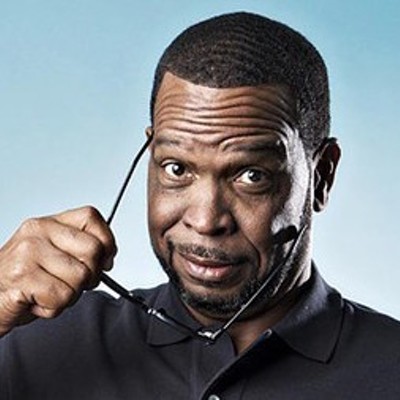Uncle Luke, the man whose booty-shaking madness made the U.S. Supreme Court stand up for free speech, gets as nasty as he wants to be for Miami New Times. This week, Luke wants to know why African Americans are not invited to the pot party.
There's big money being made in the marijuana legalization movement. But African Americans are still getting screwed when it comes to pot. In fact, black people are being squeezed out of the marijuana game. Even the New York Times, in an op-ed column calling for an end to America's pot ban, admitted that marijuana laws target African-Americans: "Even worse," they wrote, "the result is racist, falling disproportionately on young black men, ruining their lives and creating new generations of career criminals."
A study last year by the American Civil Liberties Union found that a disproportionate number of blacks are arrested for pot than whites are.
Yet as Florida voters prepare to join 23 other states that have legalized marijuana for medical use, many African-Americans will not get the opportunity to get rich doing something they are already good at: selling weed. If Amendment 2 passes in November, the state Department of Revenue projects medical marijuana businesses could make $5.6 billion in annual sales.
Orlando attorney John Morgan has dumped $4 million into the cause, claiming he's doing it for sick people. The governor's race is also about the pot. That's why Morgan is backing Crist. They want to decide who is in charge of the state health department in order to set the regulations and limit who can compete for medical marijuana licenses.
But what about African-Americans? There is no incentive for us to vote for medical marijuana.
First of all, the American marijuana industry is also going to put Jamaica -- where so much of the illicit crop is grown today -- out of business. Second, dealing weed is the number-one occupation in the hood. But take a good look at the new generation of "ganjapreneurs." They are predominantly white men like Tripp Keber, a former Capitol Hill staffer during the Reagan administration.
He owns Dixie Elixirs, a publicly traded marijuana edibles company, and he's been dubbed the "Willy Wonka of Weed." All these Colorado pot businessmen are telling Florida politicians how to set up the regulations.
It's highly unlikely a black person can compete for Keber's title. The marijuana industry is not affording African-Americans a chance to be part of the green gold rush. One major reason is that felons, especially ones who served time on drug-related charges, are not allowed to work for marijuana businesses in states that have legalized weed for medical use or in the two states that have legalized it for recreational use.
A group called Florida For Care, formed by Morgan's campaign manager Ben Pollara and that has ex-state Sen. Alex Diaz de la Portilla as its vice-chairman, wants to propose the rules and regulations for the medical marijuana industry. They have a former sheriff on the committee but there are no blacks being represented. They want to have control over who gets to open pot shops. They need to have an African American -- no Uncle Toms need apply -- at the table. In fact, they can call me.
I'll make sure black people get the opportunity to legally sell weed too.
Follow Luke on Twitter: @unclelukereal1 and @unclelukesempir.
Tune into Luke on the Andy Slater Show every Tuesday from 2 to 5 p.m. on Miami's Sports Animal, 940 AM.
Follow Miami New Times on Facebook and Twitter @MiamiNewTimes.











